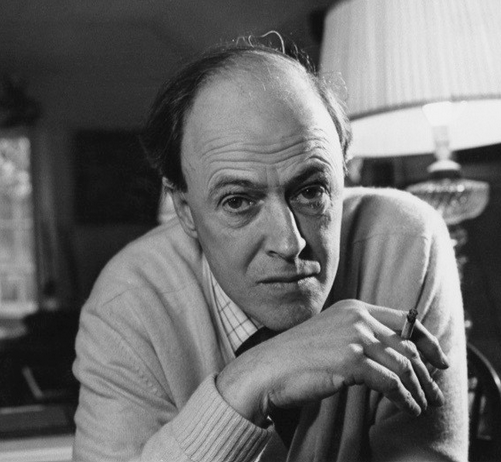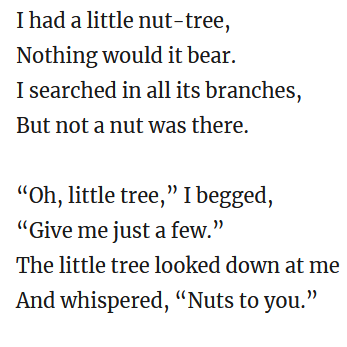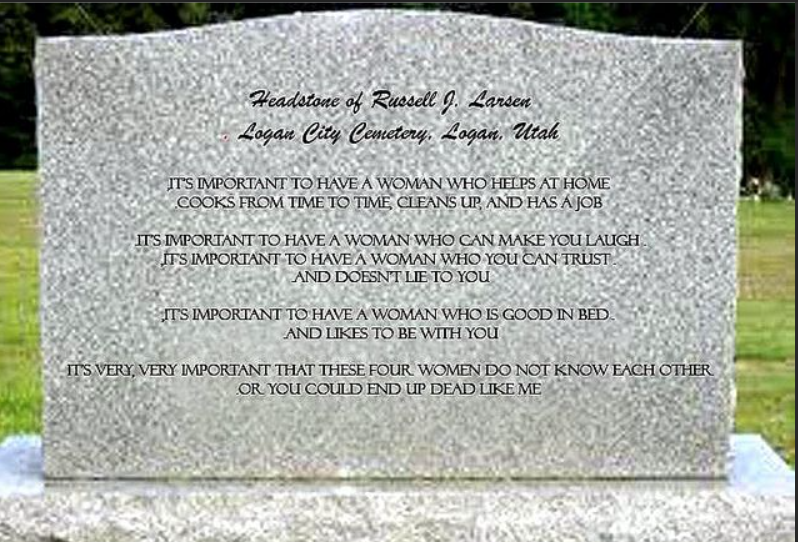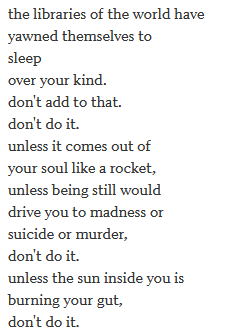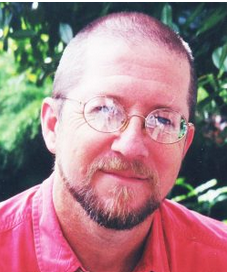Poetry Challenge #313-Gross and Gory
Pass the chocolates! Slice the giant peach! And BEASTLY school masters, get out the whipping stick! It’s Roald Dahl’s birthday!
Roald Dahl, creator of Willy Wonka, James and the B.F.G. was born on September 13, 1916. Talk about cool dude, he was born in Wales, went to boarding school—hello Harry Potter! —was a World War flying Ace—Yo! Snoopy! —and an intelligence Agent. Which in themselves are way enough, but get this:
“While Dahl was studying at Repton [a boarding school in England], the chocolate company ‘Cadbury’ would send boxes of chocolate to there to get tasted.
“This is where Dahl took inspiration for his most notable work ‘Charlie and the Chocolate Factory’ which was published in 1963.”—https://www.famousauthors.org/roald-dahl
BOY, TALES OF A CHILDHOOD is Dahl’s autobiography!
Highly recommended to readers of all ages and as a read-aloud.
Warning: It is not sunshine and lollipops…
Maybe the secret to Dahl’s success as an author and poet is simple.
He was not afraid to go THERE!
But not all the time. Here’s one of Dahl’s poems I found floating on the internet:
Here’s what Polly Barbour say about whether his stories are violent:
“Well, yes, they are people are eaten, children become lunch for a crocodile and a farmer becomes a nice juicy sandwich for a pig; eyeballs pop our as a result of too much television, and a stomach develops a vocabulary of its own when faced with extreme hunger.”- Polly Barbour
Poetry Challenge #313
Gross and Gory as Dahl
In her analysis of Roald Dahl’s poetry, Polly Barbour wrote that Dahl is a
“rare breed of author and poet who accomplishes the seemingly impossible; he writes stories and poems that children want to read and adults are delighted to read to them; his poems are just gory and gross enough for even the non-reading little boy to be captivated by, but they also contain a message or a lesson that pleases his parents.”
For today’s prompt, tap into that potty-humor-loving 4-5-7-10-11-year-old you used to be and write a poem that will shock and disgust adults—especially the buttoned-up teacher/preacher/granny type.
Let yourself go! Have fun! And if you’re so inclined, add it a devilishly Dahl didactic “message” at the end.
Set Your Timer for 7 Minutes
Start Writing!
Don’t Think About it, Write It!
For more of Rold Dahl’s poetry click on the Roald Dahl fanpage!
Cindy Faughnan and I began this 7-Minute Poetry Challenge 2700+ days ago. Now we take turns creating prompts to share with you. Our hope is that creatives—children & adults—will use our prompts as springboards to word play time. If you join us in the Challenge, let us know by posting the title, a note, or if you want, the whole poem in the comments.
Click on Fishbowl link and sign up to receive email notifications from Kelly's blog (aka The Fishbowl):
All who subscribe, comment or share a poem will be entered in . . .
Poetry Challenge #312-What You Read in the News
In case you need permission, today (Sept 6th) is National Read-A-Book Day! What better way to celebrate than with poetry, but not just any poetry, newsy poetry ala our poet of the day, Christine Rhein, because it’s her birthday and she has a nose for news!
Christine Rhein, the daughter of German immigrants, was born in Detroit and has always lived in southeastern Michigan.
She is a former auto engineer and notes that she approaches poetry in the same way she crafted cars:
“Each poem presents a puzzle, with its components and features needing to fit and operate.”
“Although such poems can’t change the tragic circumstances they address, I like to think that, in some small way, I am honoring an individual’s life, and inviting my readers to do the same.”
The poem below, "Sunflowers" is included in a new poetry anthology, Busy Griefs, Raw Towns. All proceeds from the sale of the anthology are forwarded to the International Rescue Committee (IRC) to support continuing Ukraine relief efforts. More information about the anthology can be found by clicking here.
In an interview for ReadWritePoetry Blogspot, Nancy Chen Long noted how Rhein’s poetry collection, Wild Flight, contains several poems inspired by or based on the news.
Rhein’s poetry collection, Wild Flight, contains several poem based on news
When asked why she focuses on current events, Rhein’s said,
“Although such poems can’t change the tragic circumstances they address, I like to think that, in some small way, I am honoring an individual’s life, and inviting my readers to do the same.”-Christine Rhein
Here’s a selection from Wild Flight:
Poetry Challenge #312
What You Read in the News
Of her poems, Christine Rhein says, “When I write, I want a ride that’s not safe, smooth, or even steerable, but rather one that’s full of unexpected lunges, turns, and spins.”
For this prompt, choose something from the news as your subject. Use the headlines from that story as your title. It can either be the exact headline, or one you make up.
Write a poem inspired by or based on that story. Add twists and turns and unexpected lunges ala Rhein.
Set Your Timer for 7 Minutes
Start Writing!
Don’t Think About it, Write It!
Treat Yourself: Listen to Rhein read her poem “In Detroit, What Counts as Grace.”
And, when your poem is finished, reward yourself by READING A BOOK! Maybe mine and tell your friends to buy it, because THE HOUSE THAT RUTH BUILT is baseball!
Cindy Faughnan and I began this 7-Minute Poetry Challenge 2600+ days ago. Now we take turns creating prompts to share with you. Our hope is that creatives—children & adults—will use our prompts as springboards to word play time. If you join us in the Challenge, let us know by posting the title, a note, or if you want, the whole poem in the comments.
Click on Fishbowl link and sign up to receive email notifications from Kelly's blog (aka The Fishbowl):
All who subscribe, comment or share a poem will be entered in . . .
Poetry Challenge #311-Another Dark & Stormy Please!
The book Frankenstein by Mary Shelley was written in response to a challenge one evening around a fire.
The group, including Lord Byron, Percy Bysshe Shelley, and Mary Shelley as well as others, entertained each other during a rainy vacation by reading ghost stories and poems to each other. After several were read, the group challenged each other to write something better—and scarier—than what they had read.
Mary Shelley was born Mary Wollstonecraft Godwin on August 30, 1797, in London. Her mother, Mary Wollstonecraft was a “famed feminist” and author.
Alas, Shelley’s mother died just after her birth, leaving her with her father and half-sister. Daddy soon remarried—another Mary—Mary Jane Clairmont. The proverbial wicked stepmother, Mary Jane saw no reason to educate Shelley, but wanted her gone, so sent her off to boarding school.
In 1814, Mary began a scandalous relationship with poet Percy Bysshe Shelley. (Mary was 17; Percy was one of her father’s students.) Percy and Mary, with Mary’s stepsister, Jane, in tow, ran away to England together. From England, Mary and Percy traveled through Europe. That December Mary and Percy were married. Mary wrote all about it in History of a Six Weeks' Tour, published in 1817.
"As a child, I scribbled; and my favourite pastime, during the hours given me for recreation, was to 'write stories.’”- The Life and Letters of Mary Wollstonecraft.
Back to that night, that fire, that challenge:
Percy Shelley, known as one of the major British romantic poets, promptly forgot the challenge.
Lord Byron wrote a long, rambling poem.
And Mary Shelley, at age 19, wrote Frankenstein.
BTW: In 1818 when Frankenstein, or the Modern Prometheus debuted it was published anonymously. Many thought Percy Bysshe Shelley had written it since he penned its introduction.
Poetry Challenge #311
Another Dark & Storm Please!
In honor of Mary Shelley’s birthday, write a scary poem.
First, think of your audience. Think of what scares them—real or imagined.
Write scary! Boo!
Set Your Timer for 7 Minutes
Start Writing!
Don’t Think About it, Write It!
Cindy Faughnan and I began this 7-Minute Poetry Challenge 2600+ days ago. Now we take turns creating prompts to share with you. Our hope is that creatives—children & adults—will use our prompts as springboards to word play time. If you join us in the Challenge, let us know by posting the title, a note, or if you want, the whole poem in the comments.
Click on Fishbowl link and sign up to receive email notifications from Kelly's blog (aka The Fishbowl):
All who subscribe, comment or share a poem will be entered in . . .
Poetry Challenge #310-After Life
Any poet deemed stamp worthy by the U.S Postal Service is certainly deserving of a birthday shout out. Even if it’s only a six-cent stamp, issued in 1970. Seriously, in 1970 what could one mail for 6 cents? Ghost written letters…
Happy Birthday Edgar Lee Masters (August 23, 1868 – March 5, 1950).
Spoon River Anthology, by Edgar Lee Masters was published in 1915, and was both a masterpiece and scandalous—that era’s Peyton Place. It contained over 200 poems, each a comment from the dead in a graveyard in a small, midwestern town.
The poems wailed about unfairness, condemned other occupants of the cemetery, and scandalized husbands and wives and lovers. The poems were written in free verse which had still not been widely accepted at the time.
One critic called it “shredded prose.”
A few of the poems in Master’s Spoon River Anthology are about real people, but most of the characters were created using names Masters gathered in cemeteries in a couple Illinois towns. He mixed first names from one cemetery with last names from another before writing his imagined comments from the grave. The example below was based on Masters’ pioneering grandmother.
In case you’re wondering, here’s what Edgar Lee Master’s looked like…perhaps when skulking around graveyards or peeping in windows…. I just made that last bit up. A bit of gossip… (But this photo is real, filched from Google Images.)
“How shall the soul of a man be bigger than the life he lived?”—Edgar Lee Masters
Poetry Challenge #310
After Life
If you can, wander around an old graveyard and collect names and epitaphs. Mix them together and use the name you come up with as the title of your poem. Write your poem as though this made-up person is talking. You can include an epitaph if you want.
Set Your Timer for 7 Minutes
Start Writing!
Don’t Think About it, Write It!
Cindy Faughnan and I began this 7-Minute Poetry Challenge 2600+ days ago. Now we take turns creating prompts to share with you. Our hope is that creatives—children & adults—will use our prompts as springboards to word play time. If you join us in the Challenge, let us know by posting the title, a note, or if you want, the whole poem in the comments.
Click on Fishbowl link and sign up to receive email notifications from Kelly's blog (aka The Fishbowl):
All who subscribe, comment or share a poem will be entered in . . .
Poetry Challenge #309-Don't Do it!
“Nice” and “Pretty” are two words no one EVER used to describe Charles Bukowski’s poetry.
Born Aug 16th makes Bukowski a Leo, a lion, a sunny Sun sign. He was anything but.
He was depressed, moody, drank, smoked, and quit writing altogether mid-career, a time he called his “ten year drunk” because he couldn’t sell any of his writing.
All that being said, only reading “nice pretty” poetry would be like only watching cartoons…
“The Laureate of American lowlife.”-Time Magazine, 1986.
Here’s a personal favorite. “Raw with Love,” by
Charles Bukowski was born in Germany, on August 16, 1920, the only child of an American soldier and a German mother.
At the age of three, the family moved to the U.S. he grew up in Los Angeles. His was a miserable childhood. After a few years of college, he dropped out and moved to NYC to be a writer. At the age of 24 his first short story was published, and then nothing. He went to work for the post office.
Quitting writing for a decade chewed Bukowski up, mentally and physically. After almost dying from a bleeding ulcer, Bukowski began writing again—poetry this time. He was 35 when his first poetry and then an underground newspaper column that led to a publishing contract in 1969.
Tough as he was, Bukowski felt and hurt and showed it. Here’s another by Charles Bukowski, titled “For Jane”
When he died in 1994, of leukemia, Bukowski was a popular author and performing poet and author of more than 45 books of poems and prose.
“Without trying to make himself look good, much less heroic, Bukowski writes with a nothing-to-lose truthfulness which sets him apart from most other ‘autobiographical’ novelists and poets,”— Stephen Kessler in the San Francisco Review of Books
Poetry Challenge #309
Don’t Do IT!
Near and dear to my heart is Bukowski’s poem “So You Want to Be a Writer” . Here’s a snippet plucked from the ending. (After taking the challenge, click the link to read the rest.)
“So You Want to Be a Writer” is essentially a letter to wanna-be writers listing wrong reasons you might have for wanting to be a writers ending with Don’t Do it!
Following Bukowski’s lead, write a warning poem listing pros and cons for pursuing that vocation.
First fill in the blank with an occupation/vocation, it could be anything from Butcher, Baker, Doctor, Ski Diver, Magician, Mountain Climber…
So You Want to Be a _______________
Repeat the phrase Don’t Do it! Or Do it! several times in the poem.
Set Your Timer for 7 Minutes
Start Writing!
Don’t Think About it, Write It!
Craving more poems by Charles Bukowski? Click over to An Introduction to Charles Bukowski in Eight Poems with explanations from culturetrip.com.
Cindy Faughnan and I began this 7-Minute Poetry Challenge 2600+ days ago. Now we take turns creating prompts to share with you. Our hope is that creatives—children & adults—will use our prompts as springboards to word play time. If you join us in the Challenge, let us know by posting the title, a note, or if you want, the whole poem in the comments.
Click on Fishbowl link and sign up to receive email notifications from Kelly's blog (aka The Fishbowl):
All who subscribe, comment or share a poem will be entered in . . .
Poetry Challenge #308-Regular People
Philip Larkin (1922-1985) was a well-known and well-liked English poet. He wrote only four short books of poetry, but they were written in a way that spoke to regular people—even people who thought they didn’t like poetry.
“Poetry from which even people who distrust poetry, most people, can take comfort and delight,”—X.J. Kennedy, New Criterion.
Larkin’s collections, published once a decade, include The North Ship (1945), Less Deceived (1955), The Whitsun Weddings (1964), and High Windows (1974).
He was one of post-war England’s most famous poets and was commonly referred to as “England’s other Poet Laureate,” but eschewed the opportunity to be the Poet Laureate because he shied away from attention.
Larkin used the tools of poetry such as rhyme, rhythm, and stanzas to explore everyday fears people are faced with. “The Mower” dealt with death:
You can guess the subject of this poem by it’s title, “Days”? (That’s the way with many of Larkin’s poems.) “Days” was written in 1953 and included in Larkin’s The Whitsun Weddings.
Poetry Challenge #308
Regular People
Think of a fear people face today and write a short poem examining it.
Try using rhythm or rhyme and give advice if you want!
Set Your Timer for 7 Minutes
Start Writing!
Don’t Think About it, Write It!
Other poems by Philip Larkin can be found at the Poetry Foundation website. *Warning, Larkin’s poetry should come with an R rating.
Cindy Faughnan and I began this 7-Minute Poetry Challenge 2600+ days ago. Now we take turns creating prompts to share with you. Our hope is that creatives—children & adults—will use our prompts as springboards to word play time. If you join us in the Challenge, let us know by posting the title, a note, or if you want, the whole poem in the comments.
Click on Fishbowl link and sign up to receive email notifications from Kelly's blog (aka The Fishbowl):
All who subscribe, comment or share a poem will be entered in . . .
Poetry Challenge #307-Paradise!
Paradise Lost! Paradise Found! There are as many ideas of paradise as there are people. When James Baldwin is mentioned, it’s definitely The underside of paradise that comes to mind.
James Baldwin was born on August 2, 1924, in Harlem, New York. A poet, playwright, novelist, he’s known for writing unflinchingly about the racism, race relations and what it’s like to be Black in America.
He found freedom as a human, and an author, after moving to Paris on a fellowship. A move, he noted, that allowed him to write more about his personal and racial background.
"Once I found myself on the other side of the ocean, I see where I came from very clearly...I am the grandson of a slave, and I am a writer. I must deal with both," —Baldwin, NY Times
James Baldwin’s first novel, Go Tell it on the Mountain, was published in 1953.
"Mountain is the book I had to write if I was ever going to write anything else. I had to deal with what hurt me most. I had to deal, above all, with my father.”
While James Baldwin is perhaps best-known for his essays and books such as Nobody Knows My Name, More Notes of a Native Son, and The Fire Next Time, he also wrote poetry.
This poem, “Le Sporting-Club de Monte Carlo,” Baldwin wrote for Lena Horne
In light of the freakish frightening weather patterns—including the torrential flooding in Vermont—the adage “be careful what you wish for,” came to mind after reading Baldwin’s untitled poem:
Poetry Challenge #307
Paradise!
As shown in Baldwin’s poem “Paradise” (above) everyone has their own idea of paradise.
Bonnie Raitt song, “Who But a Fool” written by Tom Snow & Nan O'Byrne has another version. The song begins: Paradise /I’ve got a man who loves me/in this life, puts no one else above me/it’s paradise…
What’s your idea of Paradise?
Aug 2 is National Ice Cream Sandwich Day—for some that might just be it!
The Saturday Review noted the success of Baldwin’s writing was that it “possesses a crystal clearness and a passionately poetic rhythm that makes it most appealing.”
Write a poem about one kind of Paradise.
Do as Baldwin would and define it with “crystal clearness” and “poetic rhythm.”
Set Your Timer for 7 Minutes
Start Writing!
Don’t Think About it, Write It!
Cindy Faughnan and I began this 7-Minute Poetry Challenge 2600+ days ago. Now we take turns creating prompts to share with you. Our hope is that creatives—children & adults—will use our prompts as springboards to word play time. If you join us in the Challenge, let us know by posting the title, a note, or if you want, the whole poem in the comments.
Click on Fishbowl link and sign up to receive email notifications from Kelly's blog (aka The Fishbowl):
All who subscribe, comment or share a poem will be entered in . . .
Poetry Challenge #306-Can You Haiku?
Happy Birthday to Jim Kacian (July 26), haiku poet and co-founder of The Haiku Foundation which has wonderful resources that might spark your own haiku ideas.
He’s written sixteen books of poetry, fourteen of which are dedicated to haiku or haiku-related genres.
Jim Kacian is also owner and publisher of Red Moon Press.
While Haiku is serious poety, it doesn’t have to be serious.
Check out the “Outside the Box” Haiku Comics like the strip below by Jessica Tremblay.
Find more comics, stories and conversations on the Haiku Foundation website:
“Haiku, like any viable art, is shifting continuously, and what will emerge in the future can only be guessed at. But it is safe to say that it has become a viable, popular form of literature throughout the world, capable of being written, shared and appreciated by many cultures, in their different ways, in all parts of the world”—Jim Kacian
To experience some of Jim Kacian’s work, and for Haiku inspiration click on Long After (below) and keep clicking through the pages. It’s way cool!
Poetry Challenge #306
Can You Haiku?
In honor of Mr. Kacian’s birthday, write haiku-like poems: 3 lines, 5-7-5 syllables, don’t rhyme, about nature. Don’t be afraid to break every one of the rules!
How many haiku can you write in 7 minutes?
Set Your Timer for 7 Minutes
Start Writing!
Don’t Think About it, Haiku!
Cindy Faughnan and I began this 7-Minute Poetry Challenge 2600+ days ago. Now we take turns creating prompts to share with you. Our hope is that creatives—children & adults—will use our prompts as springboards to word play time. If you join us in the Challenge, let us know by posting the title, a note, or if you want, the whole poem in the comments.
Click on Fishbowl link and sign up to receive email notifications from Kelly's blog (aka The Fishbowl):
All who subscribe, comment or share a poem will be entered in . . .



